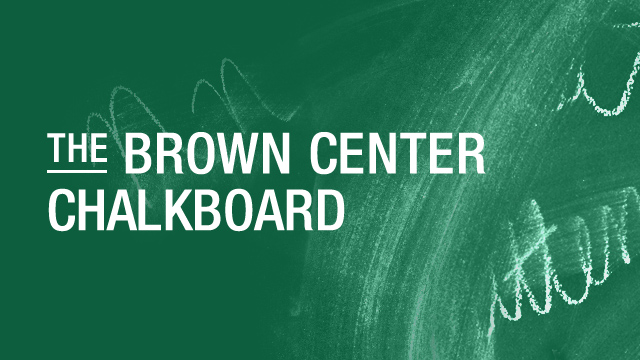The steady growth of charter schools and public school choice programs is changing the ways that U.S. public schools are governed. Traditionally, states delegate school governance to school districts, with governing authority held by locally elected boards. These districts then assign students to neighborhood schools based on students’ home addresses. Increasingly, however, school choice reforms are weakening the link between residential address and school assignment, encouraging families to choose from an assortment of tuition-free options. These reforms bring a type of market-based accountability that generates pressure for schools to appeal to local families. This has implications for the ways that schools serve private and public interests, raising important questions for state regulators.
In settings like New Orleans, where students are no longer assigned to public schools based on where they live, a school’s survival depends on its ability to persuade families to enroll. Here, schools have strong incentives to provide the types of educational experiences that families want. Indeed, New Orleans principals report feeling pressure to appeal to school-choosing families and make changes—both substantive and superficial—in response.
Charter schools have more pressure than district-run schools to attract families and more autonomy to exercise in that pursuit. This seems like a recipe to serve the private interests of their families with little regard for how schools affect the public more broadly. And these spillovers, or externalities, from K-12 education are vast. Schools play an important role in determining collective political and economic health, equipping children with skills and traits to contribute in adult life. A high-quality, well-rounded education benefits not only the child who receives it but also the many people with whom that child interacts, directly and indirectly.
Drawing on the logic of externalities and government intervention, we might expect state charter school regulators (or legislators) to focus on the mismatches between private and public goals in education. On this view, schools would be required or incentivized to serve public interests insofar as those interests do not align with families’ private interests. This could happen through reauthorization decisions or state law.
How might families’ private interests for their children’s education differ from the public’s interests for schools? This is a difficult question. David Labaree sought an answer by examining the historical goals of U.S. schools. He identified three defining goals: democratic equality, social efficiency, and social mobility. Democratic equality and social efficiency treat education as a public good. They emphasize preparing students as responsible citizens and productive workers, respectively. Social mobility, on the other hand, treats education as a private good, providing credentials—like college degrees—that sort some students into desirable social positions. Labaree argued that changes like school choice reforms are shifting priorities for U.S. schools from the development of good citizens and workers to a form of credentialism that emphasizes students’ private interests.
Translating these abstract goals to tangible school behaviors is also difficult. Perhaps a state, through its district-run schools, will prioritize students’ character development and democratic responsibility through civics courses and anti-bullying programs. Perhaps it will promote local economic health by training students for employment in local industries. On the other hand, an autonomous charter school might eschew those pursuits in favor of preparing students for admission to competitive colleges and the privileges that ensue. These schools might emphasize core academic subjects, focusing on college admissions processes that reward good grades in core subjects and high scores on entrance exams like the SAT.
This line of reasoning suggests that market-based accountability will apply sufficient pressure for schools to emphasize math and English learning and authorizers should focus their attention on the public goals of education. Yet this is not what we see. Counterintuitively, discussion of charter school regulation has focused on outcomes that seem deeply intertwined with families’ private interests: performance in core academic subjects, typically measured by test scores.
There are potentially good reasons for regulators to focus on goals that are in families’ private interests. First, our measures of schools’ contributions to student learning in core subjects are more refined than other measures. Using flawed performance measures can be more harmful than helpful, even if they are loosely related to valuable outcomes. Moreover, as proxy measures for cognitive skills, test scores are related to important public goals like economic growth.
Second, families might desire schools that teach core subjects well but struggle to obtain the information necessary to identify these schools. In fact, with information shortcomings, market-based accountability could generate stronger incentives for charter schools to look like they teach students well than to actually do so (i.e., to prioritize marketing over actual academic improvement). Thus, test-score based accountability may serve as a truth-telling mechanism.
Third, the nature of families’ school choice processes—with parents acting as agents of their children’s future interests, or children choosing schools with little understanding of the long-term consequences—might create a need for governments to protect children’s private interests as well as more shared public interests.
Finally, parents’ desires for their children’s schools might not be as different from the public’s desires for schools as researchers have suspected. Marie-Anne Suizzo surveyed parents and found that they consistently prioritize their children’s self-direction, benevolence, and prosocial dispositions over their power and achievement. Perhaps the type of education that parents want for their own children is the type of education that the broader public wants for them, too.
The Brookings Institution is committed to quality, independence, and impact.
We are supported by a diverse array of funders. In line with our values and policies, each Brookings publication represents the sole views of its author(s).




